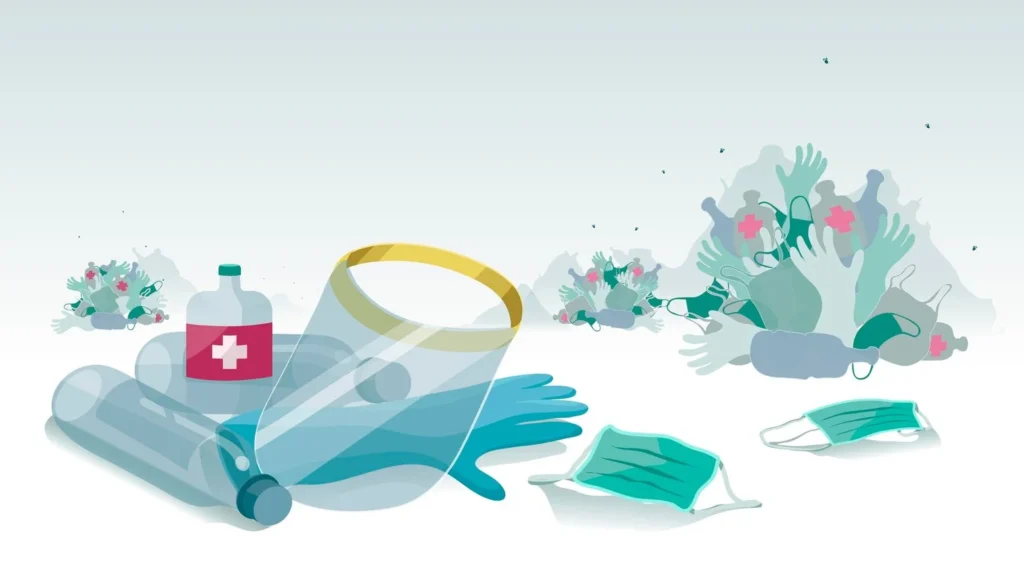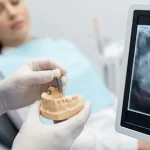Is the healthcare industry prepared to handle the hidden dangers of improper waste disposal?
As healthcare facilities across El Paso expand to meet rising demands, they must contend with more than just the challenges of patient care. One of the most pressing issues lurking beneath the surface is biomedical waste management. From hospitals to research laboratories, each institution is responsible for carefully handling and disposing of infectious materials that, if mismanaged, could pose grave risks to public health, the environment, and even the facility’s reputation.
Improper biomedical waste disposal can lead to the release of pathogens, hazardous chemicals, and other toxins into the environment. Such outcomes not only threaten El Paso’s delicate ecosystem but could also expose healthcare providers to serious legal and financial repercussions. Understanding the intricacies of waste management, particularly in growing regions like El Paso, is no longer just a regulatory requirement; it’s an essential commitment to the well-being of both the community and healthcare personnel.
Understanding Biomedical Waste: Why It’s Different
Biomedical waste, unlike other types of waste, carries the unique risk of containing infectious agents, hazardous chemicals, or radioactive materials. According to the World Health Organization (WHO), around 15% of healthcare waste is considered hazardous and can cause infections, chemical burns, or radiation injuries. For healthcare professionals and facilities, this waste requires more than just a typical disposal system. Proper management means ensuring that every step—from segregation and transportation to treatment and disposal—meets stringent health and safety standards.
Without these precautions, biomedical waste can seep into the water, air, and soil, contaminating natural resources that El Paso communities rely on. This contamination risk emphasizes the necessity for strict protocols and the use of advanced disposal techniques in every healthcare facility across the region.
Challenges in Biomedical Waste Disposal in El Paso
As El Paso’s healthcare industry grows, the strain on waste management infrastructure becomes increasingly evident. The desert city is home to a variety of healthcare facilities that generate significant quantities of biomedical waste. However, El Paso faces unique logistical and environmental challenges in managing this waste responsibly:
- Limited Disposal Facilities: El Paso has limited specialized disposal facilities, which complicates the safe treatment and disposal of biohazardous materials. Many healthcare facilities must transport their waste to nearby cities, leading to logistical challenges and increased costs.
- Environmental Sensitivities: El Paso’s arid climate and proximity to the Rio Grande make it vulnerable to contamination. Even a minor breach in waste containment can have a lasting impact on the local water supply and the broader ecosystem.
- Regulatory Complexity: The legal landscape surrounding biomedical waste disposal is complex and varies by state and federal regulations. Healthcare facilities in El Paso must navigate these regulations carefully to avoid hefty fines and penalties. To help navigate these standards, the Environmental Protection Agency (EPA) provides detailed guidance on healthcare waste management for facilities to follow, ensuring compliance and safety.
Medical Waste Disposal in El Paso: Navigating Local Regulations and Standards
Healthcare facilities must adhere to stringent regulations for medical waste disposal in EL Paso, which serve to protect both the public and the environment. The Texas Commission on Environmental Quality (TCEQ) outlines comprehensive standards for managing biomedical waste, mandating that all facilities segregate waste by type, label it appropriately, and treat it before disposal to prevent environmental contamination.
Local regulations require facilities to maintain meticulous records of waste treatment and disposal processes, ensuring traceability and accountability. This approach minimizes the risks of mishandling and fosters a safer environment for both healthcare workers and the surrounding community. It’s also crucial for healthcare facilities to remain up-to-date on regulatory changes, as non-compliance can lead to penalties and reputational damage
Best Practices for Effective Waste Segregation and Handling
Proper waste segregation lies at the heart of biomedical waste management. Facilities must categorize waste according to type—such as infectious, radioactive, chemical, or general healthcare waste—before employing specific handling and disposal methods for each category. Effective segregation is crucial in preventing cross-contamination and reducing disposal costs.
To streamline waste handling, many healthcare facilities have adopted color-coded bins and trained staff on effective waste segregation practices. For instance, sharps waste, including needles and surgical blades, must be stored in puncture-resistant containers, while chemical waste should be stored separately to prevent hazardous reactions. For more on best practices in waste segregation, the Centers for Disease Control and Prevention (CDC) offers extensive resources.
Technological Innovations in Biomedical Waste Management
As waste management needs grow, new technologies are reshaping the way healthcare facilities dispose of biomedical waste. Autoclaving, microwave treatment, and chemical disinfection are now widely used methods that help reduce waste volume and eliminate infectious agents before disposal. In recent years, advancements in waste treatment have allowed facilities to recycle certain types of waste, transforming once-hazardous materials into reusable resources.
Facilities across El Paso are now integrating digital tracking systems to monitor waste disposal from point of origin to final disposal. This technological approach not only enhances regulatory compliance but also provides transparency, ensuring that waste is managed efficiently and ethically. Some of these advanced solutions have been adopted globally, as outlined by the National Institutes of Health (NIH), and are gradually being incorporated into local practices.
Environmental and Health Implications of Improper Disposal
Improper biomedical waste disposal has far-reaching consequences, extending beyond immediate health risks. When waste is not properly managed, pathogens, chemicals, and radioactive materials can contaminate the environment, impacting air quality, soil integrity, and water supplies. In a region like El Paso, where natural resources are precious, the repercussions are amplified.
For healthcare providers, these implications highlight the moral and ethical responsibility of proper waste management. An improperly managed waste program risks not only the facility’s reputation but also the health of employees, patients, and the wider community.
Collaboration and Community Engagement: A Holistic Approach
Effective biomedical waste management goes beyond institutional practices. By fostering a culture of awareness and collaboration within the community, El Paso’s healthcare facilities can lead the way in responsible waste practices. Partnering with local waste disposal services, environmental organizations, and governmental bodies fosters a network that is proactive in safeguarding the city’s health and environment.
Programs that engage the local community can play a critical role in reducing illegal dumping and raising awareness of the risks associated with improper waste disposal. Initiatives led by the World Health Organization highlight the success of community-driven waste management practices worldwide, offering a blueprint that facilities in El Paso can emulate.
Conclusion
The importance of proper biomedical waste disposal cannot be overstated in a rapidly growing city like El Paso, where healthcare infrastructure is expanding to meet demand. Effective waste management safeguards public health, protects the environment, and enhances healthcare institutions’ reputation, solidifying community trust. By adhering to best practices, staying informed on regulatory changes, and leveraging technological advancements, healthcare facilities in El Paso can set a standard of excellence in waste disposal that benefits everyone involved.
Through concerted efforts, El Paso can continue its growth as a healthcare hub while maintaining a sustainable, safe environment for its residents.







